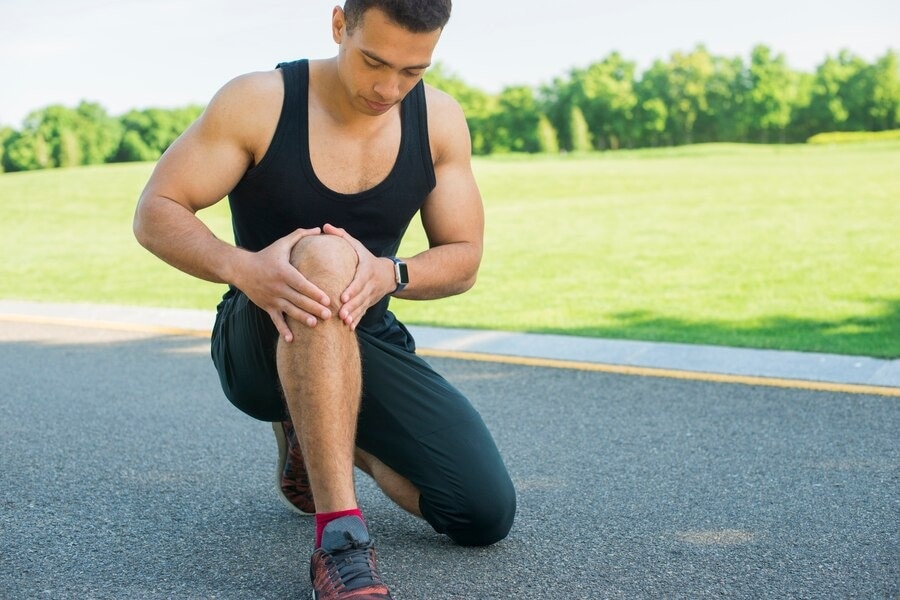Running is a great way to stay fit and healthy, but knee pain is a common problem faced by many runners. In this article, we share the common causes of knee pain after running and tips to relieve it.
For runners, knee pain can be the bane of their existence. Whether it’s a sharp, stabbing sensation or a dull, nagging ache, these types of knee problems are all too common, especially as your mileage and training intensity increases. But knee pain doesn’t have to derail your running goals. With the right approach, you can get to the root cause of your knee problems and find lasting relief. Here are some proven strategies to help stop knee pain right away.
How to Treat Knee Pain After Running
1. Strengthen the muscles around the knee: One of the main factors contributing to knee pain in runners is muscle imbalance and weakness. The quadriceps, hamstrings, and hip abductors all play a vital role in supporting and stabilizing the knee joint. If any of these muscle groups are underperforming, it can lead to abnormal joint mechanics and increased stress on the knee.
Incorporate specific strength-training exercises into your routine 2-3 times per week. Focus on moves like squats, lunges, step-ups, and calf raises to strengthen your leg muscles. Don’t forget your hips and core: strong glutes and a stable midsection also help take pressure off your knees.
2. Improve flexibility and mobility: Just as important as muscle strength is joint flexibility and mobility. Tight quadriceps, hamstrings, and iliotibial (IT) bands can contribute to knee pain by limiting range of motion and increasing friction around the kneecap.
Spend time each day stretching and foam rolling these key muscle groups. You can also try dynamic mobility exercises to improve flexibility and joint function. Activities like leg swings, power jumps, and high kicks can help prepare your body for pain-free movement.
3. Adjust your running technique: The way you run can have a big impact on how much stress your knees endure. Factors such as excessive heel strike, overly long strides, and poor pelvic control can all lead to increased impact forces and inflammation in the knee joint.
Work with a running coach or gait analysis specialist to identify any technical flaws in your running form. They can provide you with pointers and drills to help you adopt a more efficient, knee-friendly running technique. This may involve shortening your stride, increasing your cadence, or making other adjustments.
4. Introduce low-impact cross training: While running is essential for building endurance and cardiovascular fitness, it is also a high-impact activity that can aggravate knee pain. Incorporating low-impact cross-training into your routine can help relieve pressure on your knees while allowing you to maintain your fitness level.
Activities like cycling, swimming, and elliptical training are all great options. You can also try exercises like aqua jogging or running on an antigravity treadmill to get the benefits of running with less stress on your joints.
5. Listen to your body and adapt as needed: Perhaps the most important tip is to pay attention to how your body feels and make adjustments as needed. If a particular exercise or activity causes an increase in knee pain, don’t be afraid to reduce the intensity or take a rest day.
It’s also critical to address any persistent issues right away, rather than trying to push through the pain. Work with a sports medicine professional, such as a physical therapist or interventional orthopedic doctor, to get an accurate diagnosis and develop a comprehensive treatment plan.
According to Dr. Surbhi Bhagat, Senior Physician and Super Specialist in Ultrasound-Guided Interventional Pain at Orthorenew Regenexx Joint, Spine & Sports Clinic India, “Knee pain can be a frustrating and debilitating problem for runners, but it doesn’t have to be. By addressing the root causes through a combination of ultrasound-guided assessment, strength training, mobility work, running technique adjustments, and strategic cross-training, you can overcome knee problems and get back to doing what you love – running stronger and pain-free.”
